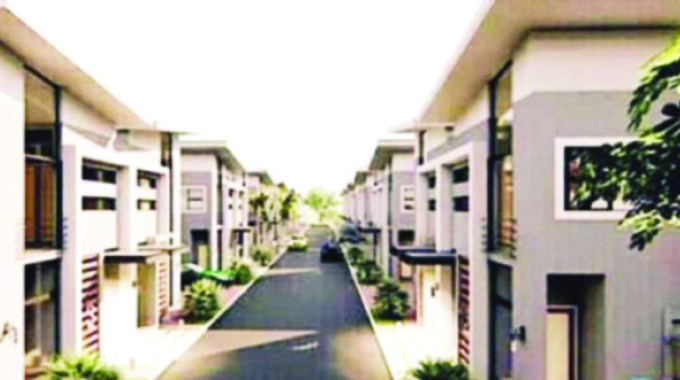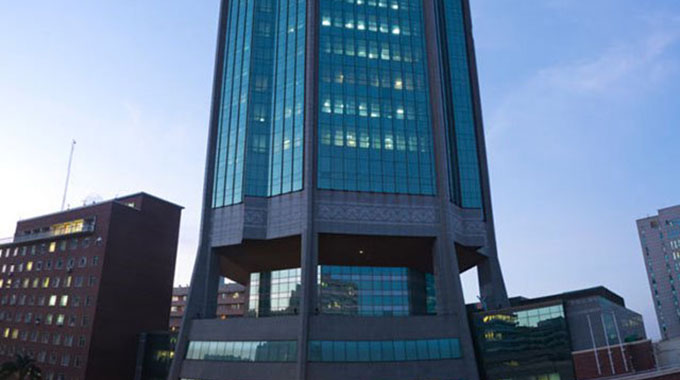Work on Zvishavane smart city begins

Elliot Ziwira-Senior Writer
Following Government’s approval of the smart cities concept last year in line with Vision 2030 imperatives, Zvishavane will soon have a feel of how technological advancements enable self-sufficiency through establishment of cutting-edge infrastructure, as preparatory works on Sharon Valley metropolis begins.
Sharon Valley Smart City, a project that falls under Coppermeadows Properties (Pvt) Ltd’s portfolio in partnership with Property World as the selling agent, will boost top-notch infrastructure, including schools, medical centre, industrial parks, high-rise apartments and an aerodrome.
Coppermeadows Properties, who owns the land, got the permit to develop the smart city through the Ministry of Local Government and Public Works.
As expected of digital cities, the city will bring all the required services to residents’ doorsteps; thus, alleviating the hassle and costs of having to travel elsewhere to access services.
The envisaged city, which is set to attract prospective homeowners from different demographics, constitutes the Runde Rural District Council of Zvishavane in the Midlands Province and borders on the Runde River.
Comprising 1 260 high density stands of approximately 300 square metres, 663 middle density stands of approximately 400sqm, and 430 low density stands, the project is divided into Phase 1 and Phase 2, each taking up 350 hectares and 328 hectares, respectively.
With 130 hectares set aside for peri-urban farming activities, the city will be self-sufficient.
The firm’s operations director, Mr Andrew Meikle, told The Herald recently that under Phase 1 of the project, anticipated to be completed by the end of October, more than 6km of road works have been done.
Clearing of the bushes and sewer pump area has also commenced, with culverts and drain pipes having been laid to link up the high density space of the city.
Mr Meikle said owing to the mountainous nature of the area, septic tanks will be used in the middle and low density regions. The project’s marketing and finance director, Mr Shahid Siddiqui, who brings Property World (Private) Limited’s 40 years of development experience to the joint venture, emphasised that buoyed by encouraging uptake, the project’s “take off would be phenomenal”, adding that investors and other businesspeople could tap into the opportunities Sharon Valley availed.
“What we are now looking for is for investors who would participate with us on the commercial centre, particularly bigger entities, to co-develop with us on this project,” he said.
There are 69 individual commercial stands occupying almost 14 hectares.
Mr Siddiqui said since the concept is one of the highest standards of developments, there will be regulated construction.
Contractors will be brought on board as well, so that aspiring homeowners have the option of finished houses. Buyers can also opt for 1 or 2 hectare plots.
“There is potential for buyers to get mortgage finance as some banks are keen on joining the venture,” said Mr Siddiqui.
Coppermeadows Properties chairman and chief executive officer, Dr Yirmeyahu Chenjerai said the Sharon Valley Smart City project speaks to the infrastructure expansion, industrialisation and modernisation embodied in National Development Strategy 1 (NDS1), which are key to achieving an upper middle income economy by 2030.
“The NDS1 is premised on four bold and transformative guiding principles, crafted to the attainment of Vision 2030, which is consistent with the collective aspirations of the people of Zimbabwe,” he said.
“Sharon Valley Smart City is one such initiative in support of that shared vision in that it offers affordable modern houses.” The project has been awarded a prescribed assets status by the Insurance and Pensions Commission (IPEC), while Cabs Custodial Services were appointed its trustees.
The smart city idea, which originated in Los Angeles in the 1970s, provides for improved energy distribution, streamlined trash collection, decreased traffic congestion, and even improved air quality through use of intelligent security.
Another plus for the concept is the promotion of green energy, which dovetails with the Government’s push for renewable and clean energy usage.
To that end, the Sharon Valley community will use solar heaters and solar energy to power their homes.
Security digital cities that provide among the best security services are the future of communal security, which will see citizens engaging with smart ecosystems in many ways using smartphones, mobile devices, connected cars and homes.
Zvishavane town, which started as a residential centre for asbestos mine workers, was born in 1916, and the urban council was established in 1979.
The town has since grown exponentially to serve as a centre providing services to surrounding mines, commercial farms and adjacent rural communities.
The town is principally driven by mining operations, being home to Shabani Mashava Mine (SSM), under Government resuscitation since 2018, and is in proximity to Murowa Diamond Mine, one of the most successful mines in Zimbabwe, which is only 40km away.
The establishment of the Midlands State University campus and the Artisanal School of Mining in the town has led to the rise in demand for accommodation.
Hence, the Sharon Valley project will improve living conditions for students and residents of Zvishavane as well as give the town world class status.







Comments